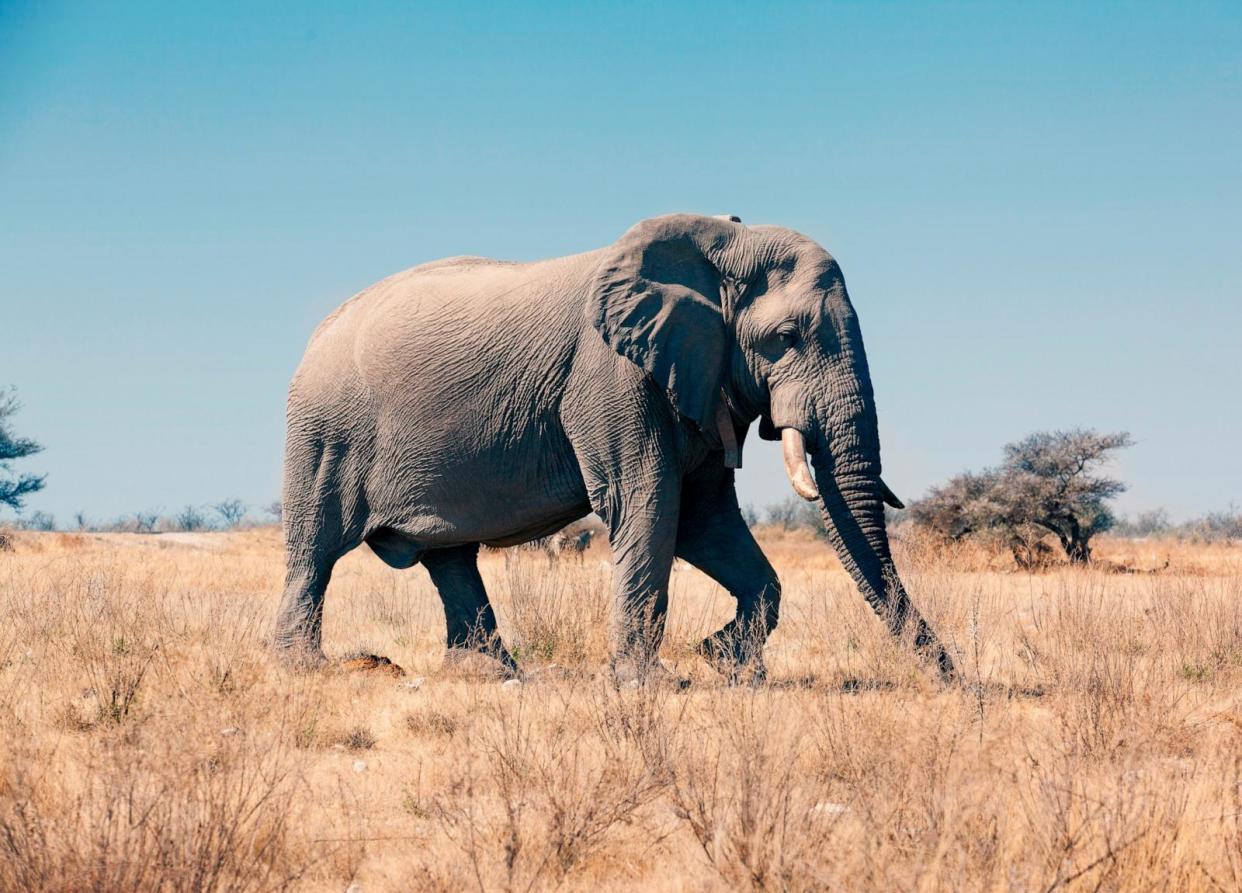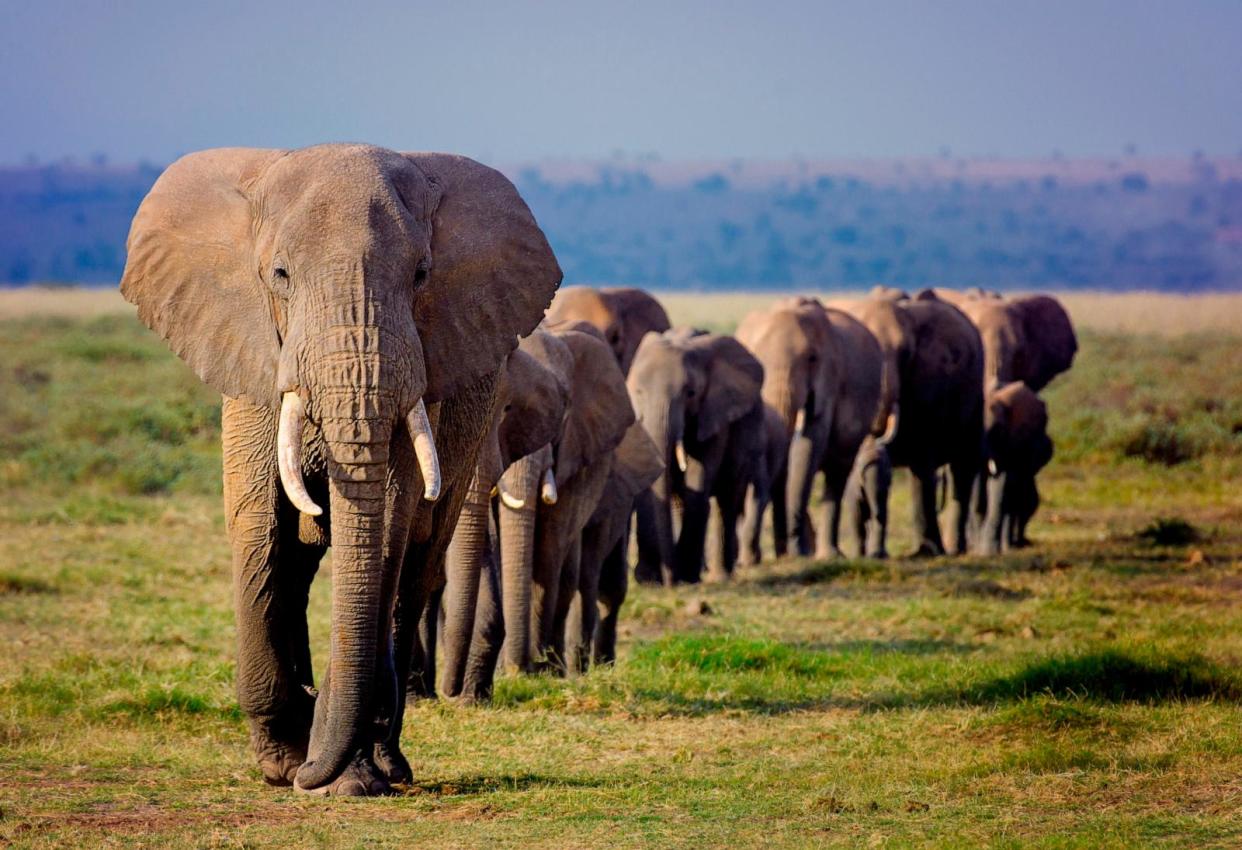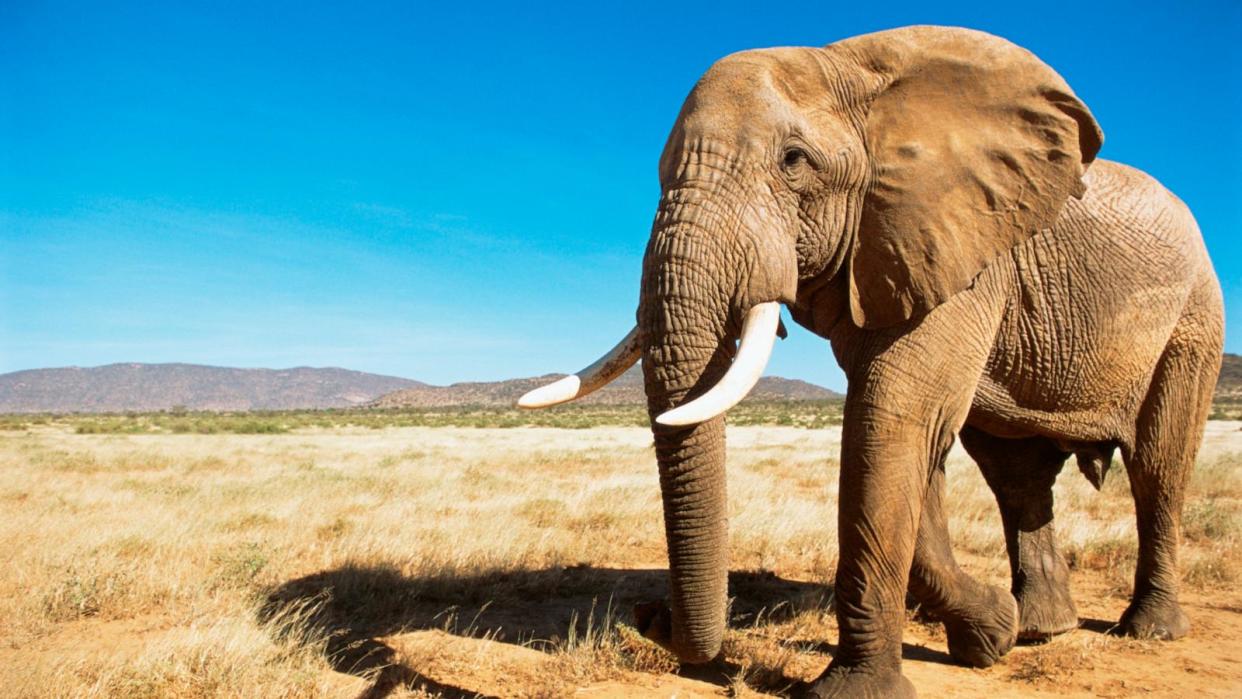Import of live African elephants and hunting trophies restricted in the US
In the face of steep population decline, the United States has moved to restrict the import of live African elephants and elephant hunting trophies.
Strengthening the Endangered Species Act, the U.S. Fish and Wildlife Service announced a final rule governing import permits last week to help ensure long-term conservation and survival of elephants in the wild.
Over the last 50 years, African elephant populations have decreased by at least 60% due to compounding threats, including poaching and habitat loss, according to Humane Society International.
MORE: Global warming could increase risk of human-elephant conflict, researchers say
"Everybody loves African elephants," Gillian Lyons, the Humane Society Legislative Fund's regulatory affairs director, told ABC News. "With their populations being so at risk, we knew that steps needed to be taken to improve the import process into the United States."
The ruling, which will take effect May 1, will restrict import to only countries that can prove their African elephant populations are stable but does not ban the trade outright, the federal agency announced in a press release Friday.
Top countries with African elephant trade, both live and for trophies, that are affected by this ruling include South Africa, Zimbabwe and Namibia.

Lyons believes the ruling is a "tremendous step forward," however, given the "extreme threat" to African elephant populations, Humane Society International believes a complete ban on the import of African elephants in the future is needed.
"We do believe that given the extreme threat to African elephants, in the future, the U.S. should take additional steps to do a complete ban both on the import of live elephants and on hunting trophies," Lyons said.
The Fish and Wildlife Service classified African elephants as threatened in 1978. Today, there are an estimated 415,000 African elephants, compared to the 26 million elephants at the end of the 18th century, according to the release.
MORE: 'Double joy': Rare elephant twins born in Kenya's Samburu National Reserve
The U.S. imports more hunting trophies than any other country in the world, according to Humane Society International, which notes America accounted for 75% of global hunting trophy imports and almost 25% of global elephant hunting trophy imports between 2014 and 2018.
The ruling intends to clarify "sport-hunted import regulations and permit requirements to increase transparency with stakeholders," according to the release.
A provision in the ruling, which will be enacted by 2026, would require exporting countries to have conservation laws to protect declining African elephant populations.

Targeting U.S. zoos, the ruling aims to ensure that imported live African elephants have strong protections once in the country, requiring that these elephants and their offspring are held at facilities "suitably equipped to house and care for them," according to the release.
"Our actions today will help support range countries' efforts to manage and conserve African elephant populations and will further protect African elephants that are imported to the United States," U.S. Fish and Wildlife Service Director Martha Williams said in the release.
"We are optimistic that with this final rule and by continuing to work in partnership with range countries, wild African elephant populations will be sustainable into the future," Williams said in the release.
In 2014, under former President Barack Obama's administration, the Fish and Wildlife Service suspended the importation of elephant trophies from Tanzania and Zimbabwe into the U.S.
MORE: Asian elephants have lost 64% of their suitable habitat, scientists say
However, in 2018, under former President Donald Trump, the federal agency retreated on that ruling and allowed the import of elephant trophies to the U.S. on a case-by-case basis.

Going into the 2024 presidential election, Lyons encourages voters to research both candidates' positions on animal imports and "vote their conscience."
"Animal issues are not a Republican versus Democrat issue, people on both sides of the aisle love animals," Lyons said. "Voters should do their research if this is something that they care about."
MORE: Videos show terrifying moment bull elephant lifts safari truck
Import of live African elephants and hunting trophies restricted in the US originally appeared on abcnews.go.com
